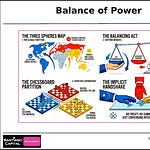"Gold is money. Everything else is credit." – J.P. Morgan
If you woke up tomorrow and the U.S. Treasury had suddenly revalued gold to $10,000 an ounce, would America instantly be debt-free? Would trillions of dollars materialize out of thin air, solving all fiscal woes with the stroke of a pen?
If only it were that simple.
On paper, it seems like a magic trick worthy of David Copperfield. The Treasury holds about 261 million ounces of gold. Revalue it high enough, and—voila!—the government has a multi-trillion-dollar windfall. But in reality, it’s a bureaucratic labyrinth, full of roadblocks, politics, and unintended consequences.
The idea isn’t new. In fact, it has been floated for decades by politicians and financial theorists alike. Even former President Trump hinted at leveraging America’s assets to reframe its balance sheet. But the mechanics of revaluing gold and spending the proceeds are anything but straightforward.
Can The Treasury Really Revalue Gold?
Yes—sort of. The U.S. Treasury can change the official gold price. That part is easy. But can they then spend that new money like a drunken sailor? Not so fast.
There are two major roadblocks:
The Fed Stands in the Way – Unlike many governments with their own national banks, the U.S. relies on the Federal Reserve, an independent (at least on paper) institution that controls monetary policy. The Treasury can't just wave a magic wand and print dollars against its gold hoard—it needs the Fed to play along.
Congress Holds the Purse Strings – Even if the Treasury revalued gold and the Fed accepted new gold certificates at the higher price, the money couldn’t just be spent freely. Congress must approve all government expenditures.
This isn’t a trivial hurdle. Congress is a place where good ideas go to die—and revaluing gold would be no exception.
A Look at History
If this all sounds like a fairy tale, consider this: we’ve done it before.
In 1933, the U.S. government confiscated gold from private citizens at $20.67 per ounce, then promptly revalued it to $35 per ounce, creating a windfall for Uncle Sam. That extra value was deposited straight into the Treasury’s account.
In 1971, Nixon closed the gold window, effectively ending the Bretton Woods system and removing the dollar’s convertibility into gold. The official gold price was later raised to $42.22 per ounce, where it remains today—comically out of sync with market reality.
If the Treasury suddenly marked gold to market—say, at $2,900 per ounce—it would create a theoretical $800 billion windfall. But, again, unlocking those funds would require both Fed cooperation and Congressional approval.
What If They Did It Anyway?
Let’s say, hypothetically, that the Treasury and the Fed were both on board. One morning, gold is revalued to $10,000 per ounce. The Treasury General Account (TGA) is suddenly brimming with trillions of new dollars. What happens next?
Inflation panic. Flooding the market with new dollars would likely ignite fears of monetary debasement, potentially triggering a surge in inflation or even a loss of confidence in the dollar itself.
Interest rates spike. The Fed, fearing runaway inflation, might raise interest rates aggressively to counteract the liquidity surge, making borrowing more expensive and potentially triggering a recession.
Gold markets explode. Such a drastic revaluation could disrupt gold markets, rendering derivatives and ETFs dysfunctional. Paper gold contracts would be obliterated overnight.
The whole thing could spiral into a financial mess faster than you can say “Weimar Republic.”
Could This Ever Happen?
In theory, yes. In reality, it’s complicated. The Treasury could revalue gold at any time. The Fed could choose to monetize it. Congress could approve the spending. But getting all three to move in lockstep is about as likely as a unicorn winning the Kentucky Derby.
That said, desperate times call for desperate measures. If another major debt crisis hits, if the dollar’s reserve status comes under threat, or if the government finds itself cornered, gold revaluation might not be as far-fetched as it seems.
And if that day ever comes, you’ll want to own some shiny metal of your own—before Uncle Sam decides to take it back.
Stay prepared, stay informed, and as always—follow the money.











